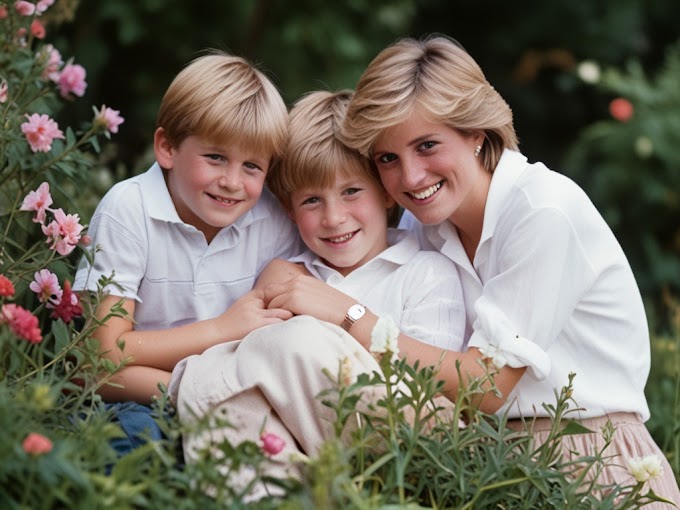The British monarchy witnessed one of its most dramatic modernizations when Prince Harry and Meghan Markle returned from royal duties. Let's dive into this historic timeline that reshaped the royal landscape.
The Early Warning Signs (Late 2019)
The cracks began showing during the couple's tour of South Africa. In a candid ITV interview, Meghan revealed her struggles with royal life, uttering the now-famous words:
"Not many people have asked if I'm okay."
This vulnerable moment foreshadowed the seismic shift to come.
Key Pressure Points:
- Intense media scrutiny
- Strained family relationships
- Struggle with traditional royal protocols
- Mental health concerns
The Bombshell Announcement (January 2020)
On January 8, 2020, Instagram post heard around the world: Harry and Meghan announced their intention to step back as "senior" royals. The announcement, reportedly catching the royal family off-guard, outlined their vision for a new "progressive role" within the institution.
The Sandringham Summit (January 2020)
Queen Elizabeth II called an emergency family meeting at Sandringham to discuss terms. The outcome:
- Agreement to a 12-month review period
- Removal of HRH titles in official capacity
- Financial independence
- Relocation to North America
New Beginnings (March 2020 - December 2020)
The couple's final royal engagement at the Commonwealth Day Service marked the end of an era. They:
- Relocated to California
- Launched Archewell Foundation
- Signed major deals with Netflix and Spotify
- Purchased their Montecito home
The Oprah Interview (March 2021)
The two-hour interview with Oprah Winfrey became one of the most-watched television events of 2021, drawing over 17 million viewers in the United States alone. The most shocking revelation came when Meghan disclosed conversations within the royal family about her unborn child's potential skin color, though she and Harry chose not to name the individual involved.
Meghan's candid discussion about experiencing suicidal thoughts during her pregnancy and the alleged lack of support from the institution sent shockwaves through the monarchy. The interview also served to correct several narratives, including the famous "Kate made Meghan cry" story, which Meghan claimed was actually the reverse of what the media had reported.
Building Their New Empire (2021-2022)
The Sussexes emerged as independent public figures:
- Harry's position at BetterUp
- Meghan's children's book "The Bench"
- Netflix documentary development
- Mental health advocacy work
Prince Harry's "Spare" Impact (January 2023)
The release of Harry's memoir "Spare" provided unprecedented insights into:
- Personal struggles within the royal family
- The impact of Princess Diana's death
- Behind-the-scenes royal dynamics
- His journey to finding personal freedom
Legacy and Impact
The ripple effects of their departure continue to influence the monarchy in several significant ways:
- Mental Health Dialogue The royal family has notably increased their mental health advocacy, with Prince William and Catherine launching more initiatives in this space.
- Institutional Reform Internal reviews of diversity policies and media handling procedures within the palace have been implemented, though kept largely private.
- Media Relations The royal family has adopted a more proactive approach to addressing allegations and controlling narratives, epitomized by their "never complain, never explain" policy evolving into strategic responses when necessary.
Current Status (Early 2024)
The couple continues their independent path while maintaining selected family ties:
- Focus on philanthropic work
- Content production through Archewell
- Advocacy for causes like mental health and equality
- Balanced family life in California
Looking Forward
While the full impact of Megxit continues to unfold, it's clear that Harry and Meghan's decision has forever changed the face of the British monarchy. Their journey from royal duties to independent life represents a modern chapter in royal history.
Why did Prince Harry and Meghan Markle leave the royal family?
Prince Harry and Meghan Markle (the Duke and Duchess of Sussex) left the royal family due to several factors, including intense media scrutiny, mental health concerns, and their desire for financial independence. The couple officially announced their departure on January 8, 2020, citing their wish to carve out a "progressive new role" within the institution while becoming financially independent and splitting their time between the UK and North America.
What were the main revelations from Harry and Meghan's Oprah interview?
The explosive Oprah interview in March 2021 included several major revelations: discussions about their unborn child's skin color within the royal family, Meghan's struggles with suicidal thoughts during pregnancy, clarification about the Kate/Meghan crying incident, details about being financially cut off from the royal family, and the fact that they were secretly married three days before their public wedding.
What is Megxit, and how has it affected the British monarchy?
"Megxit" refers to Harry and Meghan's departure from their roles as senior royals in 2020. This historic exit has led to significant changes within the monarchy, including modernization of royal approaches to mental health discussions, reviews of diversity policies within the palace, changes in how the royal family handles media relations, and new precedents for working royals and financial independence.
What are Harry and Meghan doing now after leaving the royal family?
Post-royal life, the Sussexes have established themselves in Montecito, California, focusing on running their Archewell Foundation, production deals with Netflix and Spotify, mental health advocacy and philanthropic work, publishing ventures (including Prince Harry's memoir "Spare" and Meghan's children's book "The Bench"), and speaking engagements and public appearances.
Did Harry and Meghan lose their royal titles after leaving?
While Harry and Meghan retained their Duke and Duchess of Sussex titles, they agreed to stop using their HRH (His/Her Royal Highness) titles in an official capacity, give up royal patronages and military appointments, become financially independent from the Sovereign Grant, and step back from official royal duties while maintaining family ties.











